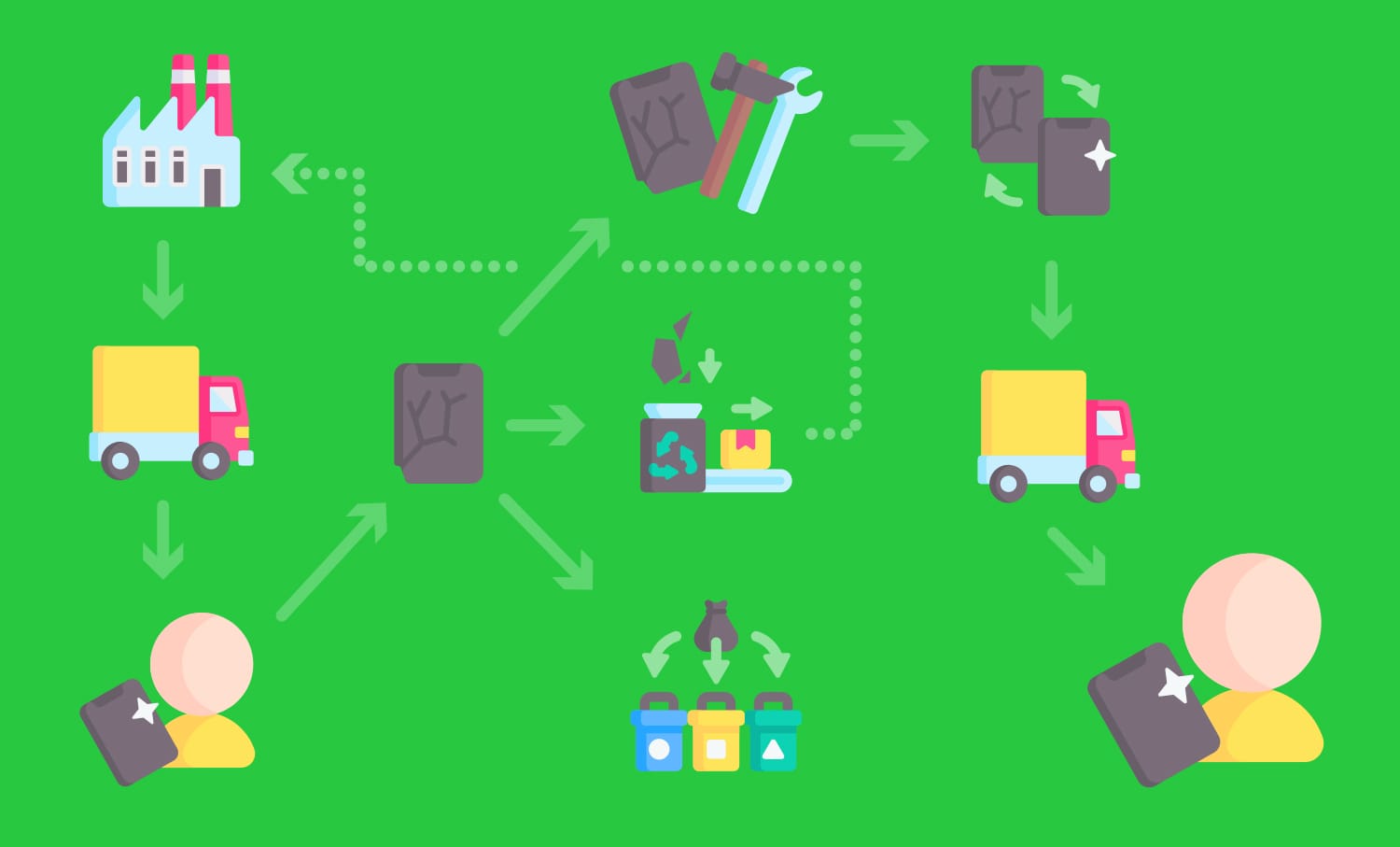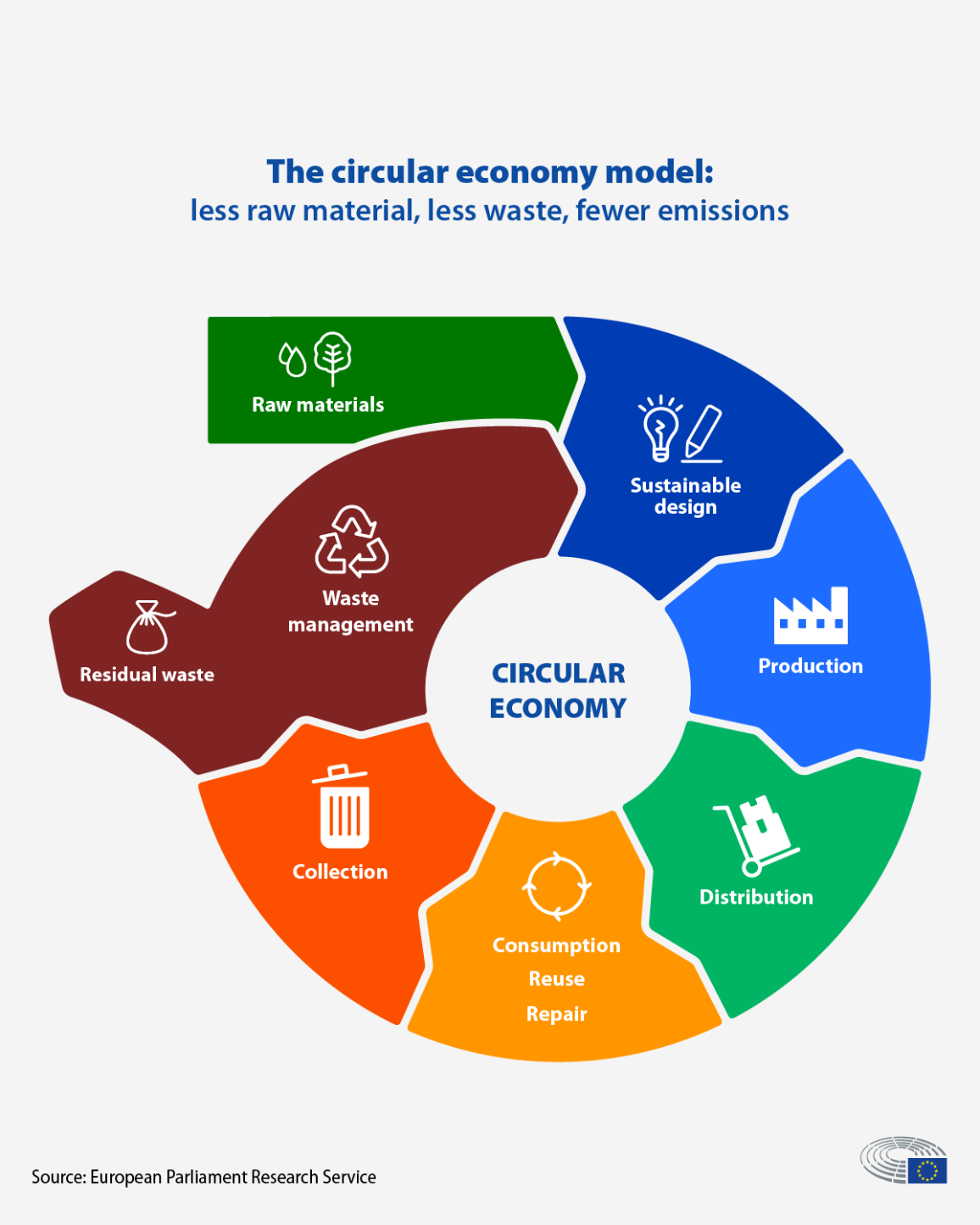Round & Round We Go: The benefits of a circular economy
The concept of a circular economy presents an innovative approach to economic systems. Its framework redefines how we produce, consume, and dispose of goods and services, proposing a more sustainable, regenerative cycle. Here's how it works.

In an era marked by growing environmental concerns and resource scarcity, the concept of a circular economy has gained considerable traction. It presents an innovative approach to economic systems, challenging the traditional linear model of 'take-make-dispose', and proposing a more sustainable, regenerative cycle. This framework aims to redefine how we produce, consume, and dispose of goods and services, fostering a more balanced and environmentally friendly future. Here's how it works.
3 Key Principles: Minimise resource depletion, reduce environmental impact, create economic opportunities
At its core, a circular economy is designed to mimic nature's cycles and all materials are part of a continuous loop. The model consists of three key principles: designing out waste and pollution, keeping products and materials in use, and regenerating natural systems. By incorporating these principles, the circular economy seeks to minimise resource depletion, reduce environmental impact, and create economic opportunities.
Principle 1: Design out waste & pollution
The first principle involves rethinking product design and manufacturing processes. It emphasises the importance of creating products that are durable, repairable, and recyclable, aiming to eliminate waste from the outset. Manufacturers are encouraged to use renewable resources, design for disassembly, and reduce the use of harmful chemicals. Additionally, innovative technologies, such as 3D printing and modular design, are being employed to enhance the life-cycle of products.
Principle 2: Keep products & materials in use
The second principle focuses on maintaining products and materials within the economic system for as long as possible. This involves extending the lifespan of products through repair, refurbishment, and re-manufacturing. It also emphasises the concept of sharing, leasing, or product-as-a-service models, enabling multiple users to utilise a product's value before it is recycled. Furthermore, effective waste management and recycling processes play a crucial role in keeping materials in circulation.
Principle 3: Regenerate natural systems
The third principle pertains to regenerating natural systems by restoring and preserving ecosystems. This involves promoting renewable energy sources, sustainable agricultural practices, and the preservation of biodiversity. By prioritising the regeneration of natural resources, the circular economy aims to reduce the strain on the environment and create a more resilient and balanced ecosystem.

Advantages of a circular economy
One of the fundamental advantages of a circular economy is its potential to generate economic growth while reducing environmental impact. Shifting from a linear to a circular model opens up new business opportunities, stimulates innovation, and creates jobs in sectors like re-manufacturing, repair services, and recycling industries. This transition encourages entrepreneurship and the development of new markets based on sustainable practices, fostering a more diversified and resilient economy.
Embracing a circular economy can also contribute significantly to mitigating climate change. The reduction of waste and the optimal use of resources result in decreased greenhouse gas emissions. By reusing and recycling materials, less energy is required for extraction and manufacturing, ultimately lowering the carbon footprint. Additionally, the emphasis on renewable energy sources and sustainable practices aligns with efforts to combat climate change.
Policymakers, enterprise, & consumers all have a role to play
Governments, businesses, and consumers play integral roles in the transition towards a circular economy. Policymakers can support this shift by implementing regulations that incentivise sustainable practices, encourage eco-design, and promote responsible waste management. Businesses can adopt circular strategies by redesigning products, rethinking supply chains, and investing in sustainable technologies. Consumers can also play a crucial role by making informed choices, supporting eco-friendly products, and embracing the 'reduce, reuse, recycle' ethos.
Overcoming the challenge of widespread implementation
While the concept of a circular economy holds immense promise, its widespread implementation does face challenges. These include technological limitations, high initial investment costs, cultural inertia, and the need for significant behavioural changes. Overcoming these hurdles requires collaborative efforts from governments, businesses, academia, and the public to drive innovation, research, and education on sustainable practices.
Education and awareness are crucial in fostering a societal shift towards embracing the principles of a circular economy. Encouraging a shift in mindset, promoting responsible consumption, and highlighting the interconnections of environmental, economic, and social aspects can help accelerate the adoption of sustainable practices.
A viable pathway to sustainability & economic growth
The transition to a circular economy represents a transformative approach to sustainability and economic growth. By redesigning systems, rethinking production, consumption, and disposal patterns, and prioritising environmental preservation, the circular economy offers a viable pathway toward a more resilient, resource-efficient, and prosperous future for generations to come. Embracing this model is not merely an option but an imperative step towards addressing pressing environmental challenges and creating a thriving global society.